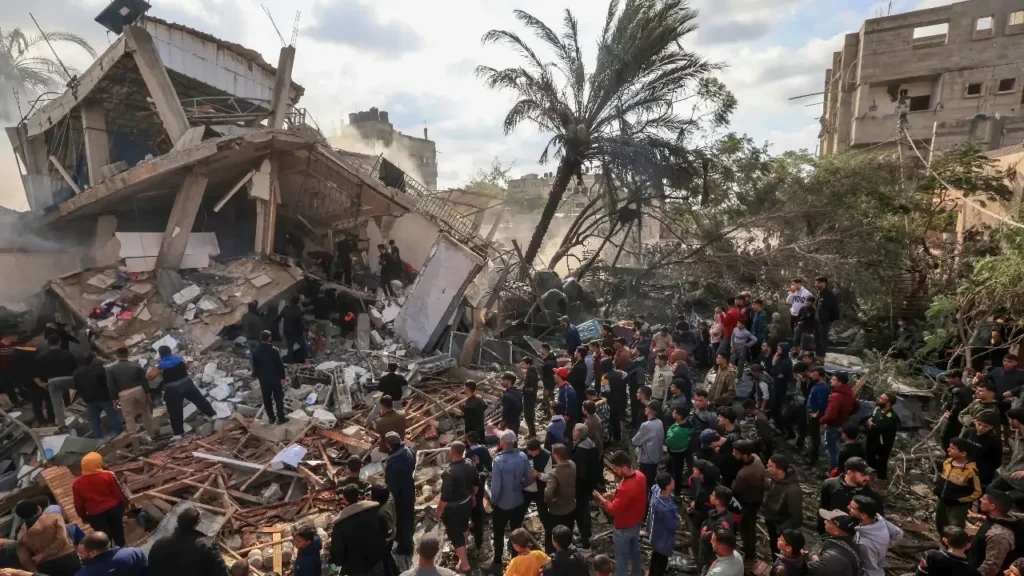Gaza crisis is considered to be an unparalleled human disaster and environmental catastrophism.
The Gaza conflict has escalated to unprecedented levels, described just recently as genocide by the International Court of Justice. Urgent global attention is needed now, for the humanitarian crisis spurred by this problem runs deep-loss of life and huge displacement-rather is ecocide in respect to the systematic destruction of the environment and ecosystem of Gaza.
The experts warn that the physical landscape destruction in Gaza
Is triggering irreparable ecological consequences that will outlive the conflict. Habitat damage is most serious, risking the biodiversity of the area. Flora elimination-the tree cover and flora-extends local food chains, forcing wildlife, including birds and smaller mammals, to leave their habitats or die.
Coastal and marine ecosystems are extremely badly threatened
Military action-related pollution and degradation of marine habitats threaten livelihoods involving fishing and other use of marine resources. All these already vulnerable aspects will worsen due to the ongoing war, with contamination of soil and water jeopardizing agriculture productivity and access to safe drinking water for the years ahead.
Deforestation, including the infamous destruction of Gaza’s iconic olive trees, only added to the environmental crisis. Bombardments and fires significantly increased loss of ground vegetation, which increases erosion and desertification with a concurrently decreased habitability and agricultural value.
Environmental degradation has contributed
Significantly to the rapidly deteriorating public health situation in Gaza. Damaging the water infrastructure has caused potable water to become contaminated by including sewage in drinking water. Such environmental contamination, combined with the collapse of waste management facilities, results in severe risks to public health-both from waterborne infections and sanitation deficit.
The basic use of sanitation is inaccessible to them. In such a context, the outbreak of infectious diseases is exponentially intensified. The unsanitary disposal of human remains and the backlog of waste have increased opportunities for spreading certain disease vectors, which are now developing into substantive and significant health threats.
Furthermore, the harmful emissions emitted by levelled industrial plants pose long-term health effects to both vulnerable groups and others as well. For example, although an individual’s cognitive ability may not be impaired immediately, environmental toxins may impact their cognitive development, or it may even trigger chronic health problems.
This environmental crisis also spells out serious social and economic
Implications that worsen poverty and social inequality. This loss of access to nature brings about further displacements and social unrest resulting from the termination of traditional livelihoods such as agriculture and fishing.
The massive environmental destruction in Gaza has sparked discussions on “ecocide.” The term refers to the maximum and diffuse damage to the environment. As of yet, there is no such recognition under international law, but having not a specific place in international law, it defined extreme and extensive damages to the environment. The principles under the Rome Statute as well as the Geneva Conventions point out how extreme destruction to the environment must also be dealt with in the context of armed conflict.
There is a greater call to hold accountable those responsible for environmental damage and other humanitarian effects as the international community struggles with implications of these events. A more holistic approach to these interlocking issues the environmental, humanitarian, and human rights – is more urgent now than ever before.
As discussions unfold within the international forum, and even possible action from the Organization of Islamic Cooperation (OIC), focus is on finding ways to punish the perpetrators for the destruction conducted on Gaza’s environment and its people.
